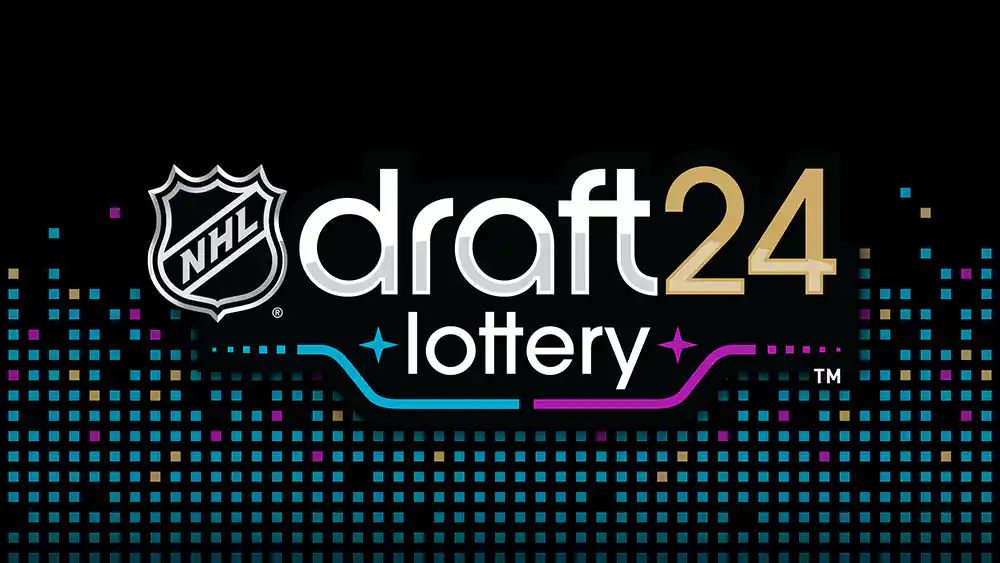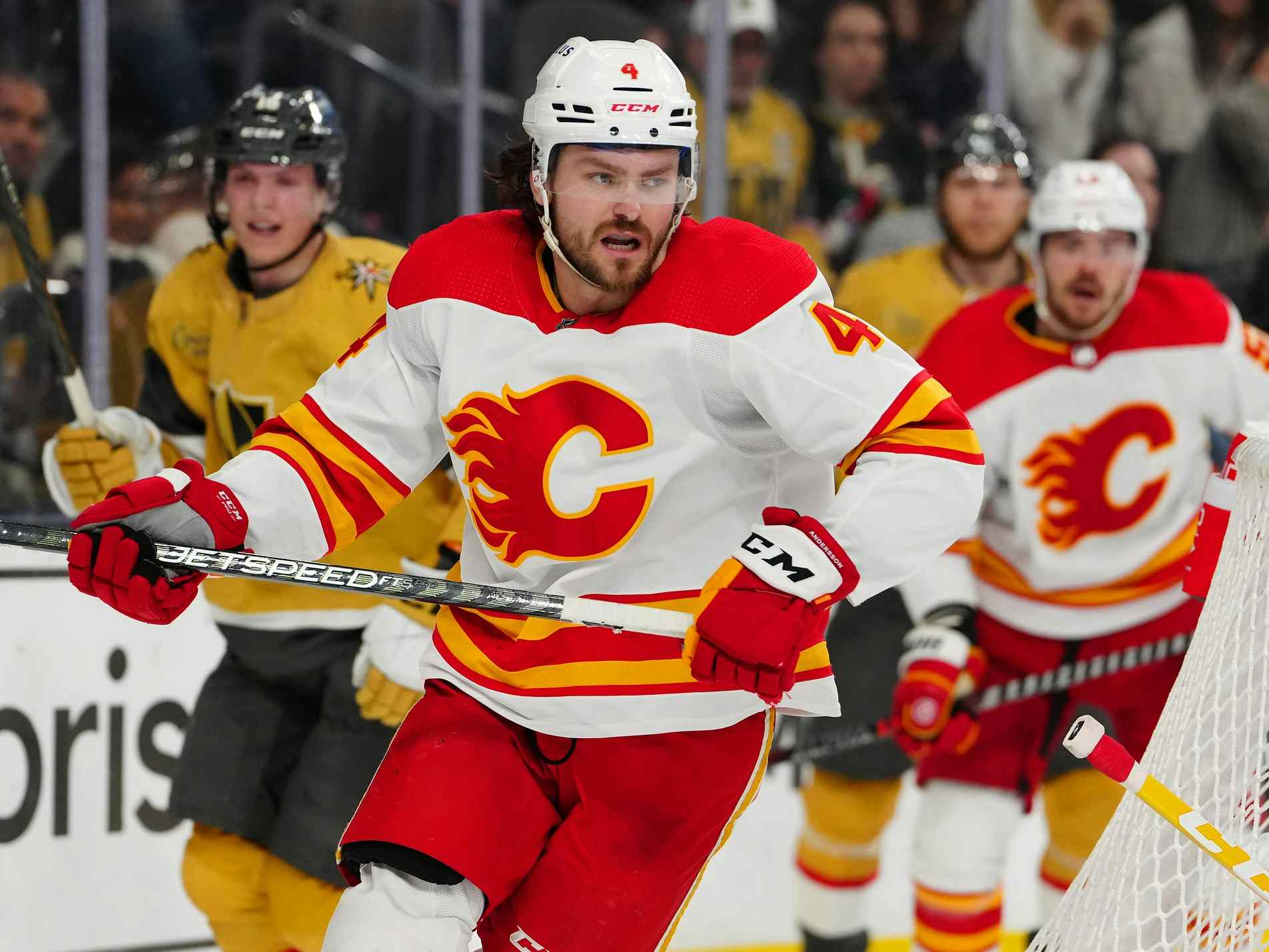Flames at the World Juniors: Double gold, a silver, and a bronze
By Ari Yanover
7 years agoI would imagine it’s easier to get up to play for a gold medal as opposed to bronze, and that reflected in the starts to both medal games as the 2017 World Juniors came to a close.
The starts – because the bronze medal game did pick up in pace as it went on (before the inevitable depression that comes with losing two games in a row, and walking away with absolutely nothing to show for it – finishing fourth place has to be the absolute worst).
The gold, though? That one got off to an intense start that never relented.
In the end, Adam Fox, Tyler Parsons, and Team USA won gold; Dillon Dube and Team Canada won silver; Pavel Karnaukhov and Team Russia won bronze; and Oliver Kylington and Team Sweden ended up having to walk away empty handed.
Russia 2 – Sweden 1 (OT)
Oliver Kylington was named Sweden’s player of the game. He played 22:27, the most out of all Swedish skaters. He had five shots on net: the second most, behind Jonathan Dahlen who had eight, and tied with Joel Eriksson Ek.
On a Swedish team that has been having trouble scoring in the medal rounds, Kylington was one of their most active players, and one of the ones most desperate to create something. He quarterbacked their powerplay, distributing the puck and finding his own shooting lanes rather often; he didn’t take any bad shots, and a number of his puck distributions had the potential to be dangerous. (He actually briefly broke Kirill Belyayev on a kill, as he ended up blocking two Kylington shots and was left incapacitated until his next shot got through and Ilya Samsonov froze it.)
He was out there for Sweden’s goal, and not on the ice for any goals against, though he ultimately didn’t have any impact on the goal, which was a solo-created effort from Dahlen off a turnover.
Kylington’s one penalty actually came from slashing Karnaukhov on his way to the net; Karnaukhov was driving towards it and the slash ended any scoring chance, while the Swedes were able to kill off his penalty. He also had a couple instances of rubbing Russians out while they were on the rush, preventing more scoring chances from them.
Most prominent about him was his skating, which should come as no surprise. There were constant instances throughout the game that resulted in frantic back-and-forth play, with Kylington following the puck from end to end each time and seeming to not tire while doing so: leading the rush to create a Swedish chance, being one of the first ones back when it went the other way for a Russian chance, then back down the offensive end, and so on and so forth. His skating is incredible.
If you were able to watch the broadcast, Ray Ferraro had a fair amount of love for him, along with succinctly pointing out his faults: namely an occasional lack of vision, being blindsided by opportunities to jump up in the rush, and subsequently isolating himself in no-man’s land and being surrounded by the opposition. This seemed fewer and further between by my eye, at least this game.
Throughout the tournament, Kylington emphasized just what makes him so promising a prospect, while also showing exactly why patience needs to be exhibited with him. And it’s extremely unfortunate he’s the only Flames prospect to come away without a medal – because he could still be the most exciting of them all.
Pavel Karnaukhov played 13:53, once again in about a third line role. He had just one shot on net and wasn’t an impact on any of the goals scored, either for or against.
That said, it’s not like he didn’t try. Throughout this tournament, Karnaukhov has tried to centre the puck, leading to golden opportunities that almost every time his teammates missed. There was a rather prominent example of this in the bronze medal game, too. Similar to his assist on the Russians’ second goal against the Americans in the semifinal, Karnaukhov had multiple Swedes on top of him behind the Swedish net. He outmuscled them in order to lay out a beautiful centring pass to Denis Guryanov – who fanned what would have been a golden scoring chance.
Otherwise, it was the same from him as it’s been all tournament: a general steady, physical presence trying to create something and mostly failing, though often through no fault of his own. He did turn the puck over a couple of times, which led to some dangerous chances for the Swedes; that led to him hauling ass to make sure nothing bad came of it. (Nothing did.)
Karnaukhov ends his world junior eligibility with a bronze medal.
USA 5 – Canada 4 (SO)
Dillon Dube played 17:19, including 5:12 in overtime. He was credited with three shots on net, including two in overtime, and did not pick up any points, though he was out there for Canada’s second goal.
And honestly, the lack of points for Dube – he registered just three assists through the tournament – is not an accurate reflection of his contributions to this team. His linemate, Anthony Cirelli, did steal the show; that said, it can’t be understated just how good a fourth line this was for the Canadians. When their top players struggled, they were the ones who got things going. They were thorns in the sides of the Americans throughout the game.
Dube was a part of multiple rushes up the ice, many of which led to Canadian scoring chances, and at least one of which drew a penalty. He was an initiator of several Canadian cycles, and created a number of opportunities that had the chance to turn into something. When he did make a mistake – such as turning the puck over – he busted back in order to prevent further damage, such as by clearing away an ensuing rebound.
While Dube received limited powerplay time, he was once again prevalent on the penalty kill, and generally did a good job of holding the Americans to the outside or killing time in the offensive zone instead. He wasn’t perfect – there were even strength shifts in which he didn’t do much to help as the Americans dominated the Canadians – but they were, overall, few and far between.
He was fast, he used his speed to set up Canadian chances, and he had a bigger role than the numbers give him credit for.
He’s 18, so he’ll be eligible to play again for Canada in 2018. I’d be surprised if he didn’t return, especially considering how little he played prior to the tournament in general, and how Team Canada still wanted him. An older Dube, and hopefully one with a healthy season beforehand, in this tournament will be one to watch without a doubt.
Adam Fox played 14:32, including just 2:14 in overtime. Fox’s diminishing usage over the game was a little perplexing considering how he had a direct hand in three of the Americans’ four goals. He played the least amount out of all healthy American defencemen, and yet he had the most points out of everyone who played in this game, for both teams.
Fox had one assist this tournament coming into this game. He assisted on the Americans’ first goal, helping advance the puck up the ice prior to Charlie McAvoy scoring.
His second assist came on the powerplay, when he took a shot from the point and it bounced off of Kieffer Bellows and in.
And his third assist was on the Americans’ final goal, and the one that sent the game to overtime. Again, from the point, Fox had his head up and saw Colin White in prime scoring position; he found him with a seeing eye pass, tying the game and being the final piece in the puzzle to force overtime – and, ultimately, set the stage for his goalie to secure the gold medal.
He wasn’t perfect in this game; there were times the sheer force of the Canadian players simply overwhelmed him (an aimless batting of the puck out of mid-air turned directly into a Canadian goal, for one thing). At the same time, he generally did a good job of preventing clean zone entries, and he was overall composed in his own end when he couldn’t. He was also able to clear the puck cleanly more often than not.
But this was the game where we really saw just how Fox is scoring as much as he is in the NCAA. Like Dube, he’ll be eligible to play next year. Hopefully he’ll have a bigger role – because the Americans don’t even get to overtime without Fox’s instincts.
Tyler Parsons stopped 46 of 50 shots, including 17 in overtime (the Americans, in turn, only took seven shots through the extra frame). He had a 95.83 SV%, and was perfect in the shootout.
Even though he let in four goals, he was phenomenal. Broken record, but Parsons is the epitome of a battler; never more apparent than during overtime, during which he was overwhelmed with scoring chances against him – in particular on the penalty kill. He was especially aggressive then, challenging players and winning each battle.
He didn’t give up any particularly bad goals. Two goals on three shots to open the game wasn’t ideal, but he didn’t always get the help he needed from his defencemen anyway, and had to start the game diving across the crease – and getting scored on – as every American in front of him collectively had a breakdown just five minutes in. The fourth goal against was the result of a complete undressing of the American defencemen as well, leaving him with little chance.
Parsons also gave up some pretty nasty rebounds at times, but without any Canadians in the area to capitalize on them, he was safe – though he did sacrifice goals due to rebounds earlier in the tournament, so that’ll probably be a thing to watch out for in the future. Certainly didn’t hurt him this game, though.
Throughout the game, Parsons had to contend with players from both teams falling all over him. Despite that he was still able to track the puck, was never really taken by surprise, and just dominated his own crease, no matter how many shots came his way.
Parsons ages out of the tournament with a gold medal, and his teammates can all thank him for theirs, too: 36 shots for them, 50 against. Parsons crushed it in back-to-back games.
Recent articles from Ari Yanover




